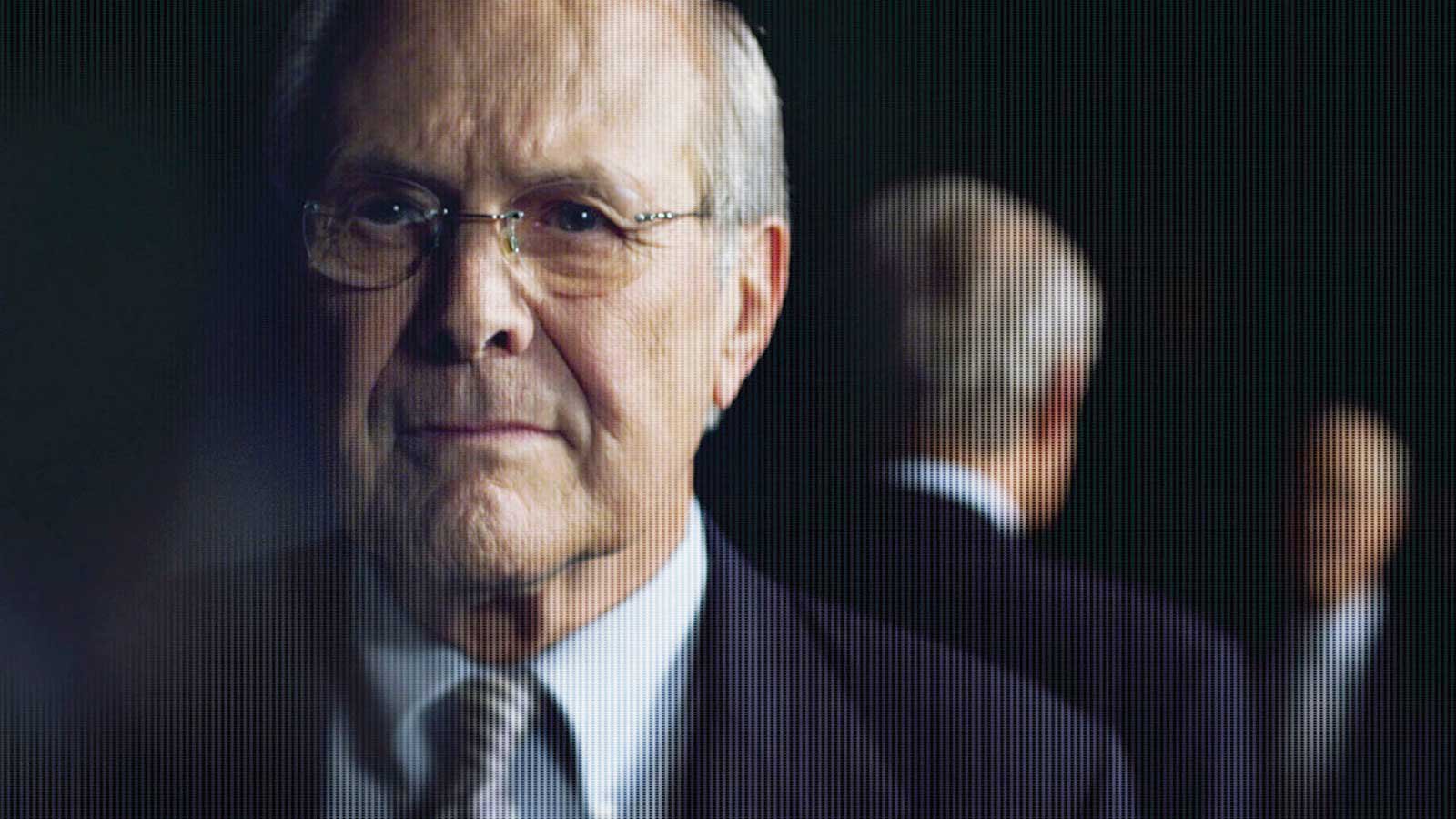The Unknown Known
Opens Fri., April 11 at Sundance. Rated PG-13. 102 minutes.
The conceptual appeal is unmissable: Having won an Oscar for his 2003 The Fog of War, a study of Vietnam War architect Robert McNamara, documentary giant Errol Morris would naturally turn to another controversial U.S. Secretary of Defense for a bookend project. The subject here is Donald Rumsfeld, who held the job during the commencement of the Afghanistan and Iraq wars. Rumsfeld became famous for his loquacious (at times downright hammy) press conferences, when the sound of his own voice would lead him through ever-expanding circles of rhetoric—a Yogi Berra elevated to a position of life and death. Thus his classic formulation: “There are known knowns . . . There are known unknowns . . . But there are also unknown unknowns.”
I always thought that was one of the more sensible of Rumsfeld’s puckish quotes. But—at the risk of sounding Rumsfeldian—it does give a glimpse into a mind in which even uncertainties are something to be certain about. And this is what makes The Unknown Known something of a non-starter as an Errol Morris film. Rumsfeld is utterly tranquil in his aphorisms and his conviction. The fog of war? There isn’t even a faint mist in Rumsfeld’s mind. Where McNamara was troubled by the decisions he’d made during Vietnam, Rumsfeld does not appear to have practiced introspection, or even heard of it. Nothing happens to break the surface, and Rumsfeld’s bright-eyed, unfailingly cheerful bureaucrat is unflappable in the face of Morris’ camera.
Morris supports the interview sessions with vintage clips of the man’s career, as well as sound bites from the war years. It comes to feel desperate, as though Morris knew he hadn’t gotten through to his subject and needed to fill out the program with evidence. But maybe this extended look at blandness is a worthy companion piece to The Fog of War after all. It lacks that movie’s drama; but in the absence of a breakdown or the slightest bit of hand-wringing, it allows the viewer to decide how to view this singularly unreflective person. Intriguing bits are highlighted, such as Rumsfeld’s torrent of memo-writing—some on big issues, some daftly trivial. What drives that? For that matter, why did Rumsfeld sit down with Morris for an extended interview? Morris, perhaps exasperated, asks him that question as the film nears its close. It’s the one moment Rumsfeld seems at a loss for an answer. His not to reason why; his but to be a decider.
film@seattleweekly.com







